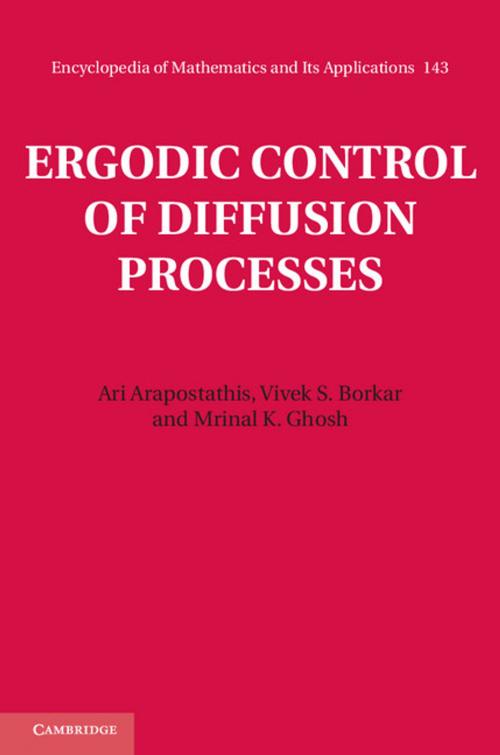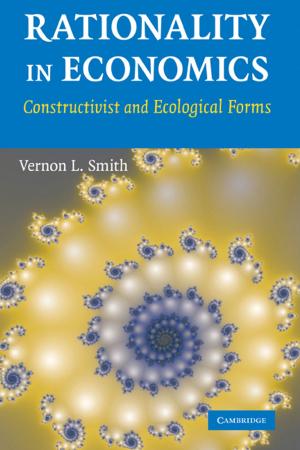Ergodic Control of Diffusion Processes
Nonfiction, Science & Nature, Mathematics, Probability, Statistics| Author: | Ari Arapostathis, Vivek S. Borkar, Mrinal K. Ghosh | ISBN: | 9781107085411 |
| Publisher: | Cambridge University Press | Publication: | November 17, 2011 |
| Imprint: | Cambridge University Press | Language: | English |
| Author: | Ari Arapostathis, Vivek S. Borkar, Mrinal K. Ghosh |
| ISBN: | 9781107085411 |
| Publisher: | Cambridge University Press |
| Publication: | November 17, 2011 |
| Imprint: | Cambridge University Press |
| Language: | English |
This comprehensive volume on ergodic control for diffusions highlights intuition alongside technical arguments. A concise account of Markov process theory is followed by a complete development of the fundamental issues and formalisms in control of diffusions. This then leads to a comprehensive treatment of ergodic control, a problem that straddles stochastic control and the ergodic theory of Markov processes. The interplay between the probabilistic and ergodic-theoretic aspects of the problem, notably the asymptotics of empirical measures on one hand, and the analytic aspects leading to a characterization of optimality via the associated Hamilton–Jacobi–Bellman equation on the other, is clearly revealed. The more abstract controlled martingale problem is also presented, in addition to many other related issues and models. Assuming only graduate-level probability and analysis, the authors develop the theory in a manner that makes it accessible to users in applied mathematics, engineering, finance and operations research.
This comprehensive volume on ergodic control for diffusions highlights intuition alongside technical arguments. A concise account of Markov process theory is followed by a complete development of the fundamental issues and formalisms in control of diffusions. This then leads to a comprehensive treatment of ergodic control, a problem that straddles stochastic control and the ergodic theory of Markov processes. The interplay between the probabilistic and ergodic-theoretic aspects of the problem, notably the asymptotics of empirical measures on one hand, and the analytic aspects leading to a characterization of optimality via the associated Hamilton–Jacobi–Bellman equation on the other, is clearly revealed. The more abstract controlled martingale problem is also presented, in addition to many other related issues and models. Assuming only graduate-level probability and analysis, the authors develop the theory in a manner that makes it accessible to users in applied mathematics, engineering, finance and operations research.















